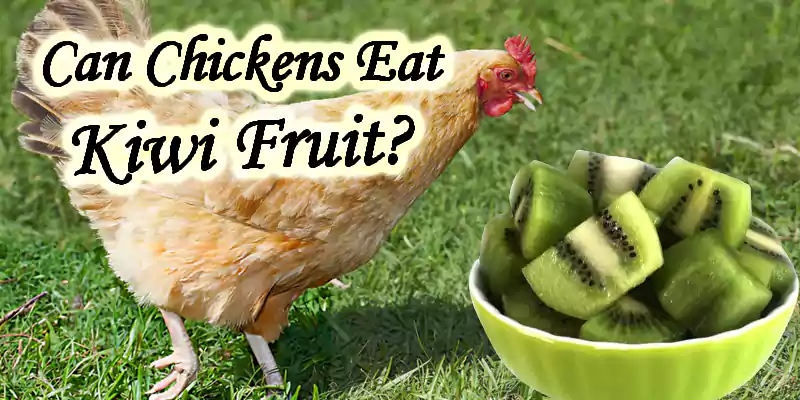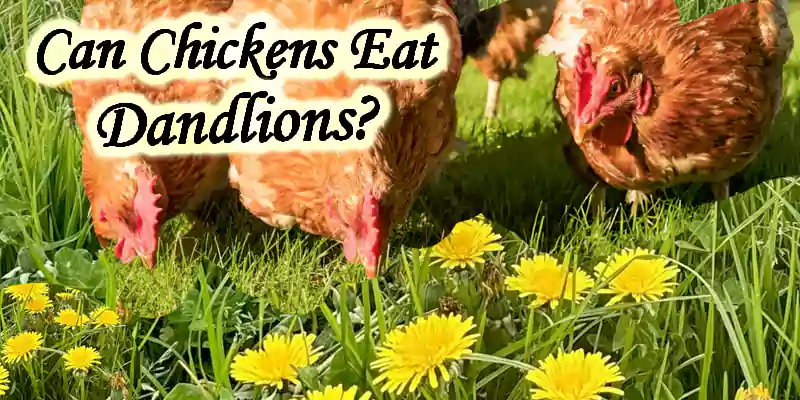Can Chickens Eat Corn? Everything You Need to Know!!
Published: 24 Nov 2024
As a chicken enthusiast, you’ve probably wondered: Is corn safe for my flock? Maize often sparks debate in the poultry world. Some poultry keepers call it a nutritious treat, while others warn about the risks of overfeeding. So, what’s the truth? Yes, chickens can eat corn in moderation. To ensure it’s a safe and healthy treat, it’s essential to understand the finer details of feeding Maize to your flock.
This article will investigate the mystery behind feeding gains to the flock. From its nutritional value to potential risks and even the best ways to serve it, you’ll learn everything you need to make an informed choice for your feathered friends. Let’s explore the role maize plays in their diet.
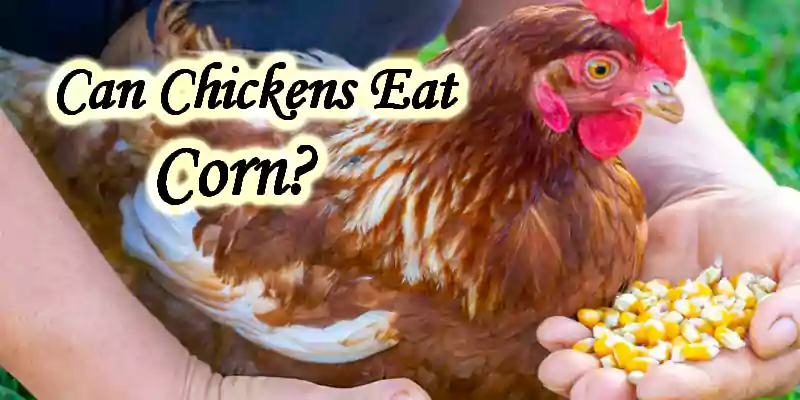
Can Chickens Eat Corn? Everything You Need to Know
Is Corn Good for Chickens?
Yes, It is good for the flock when fed in moderation. It is a favorite treat for many flocks because it is tasty, energy-rich, and easy to digest. It provides carbohydrates, essential for keeping your clucking friends active and warm, especially during colder months.
While it’s not a complete feed, it complements a balanced diet by offering quick energy and supporting healthy body functions. You can serve it cracked, whole, or even as corn on the cob, making it a versatile option. Ensure it doesn’t replace their main feed, as they still need protein, vitamins, and minerals for optimal health.
Nutritional value of Corn
Corn is a nutrient-rich food that provides the energy they need to stay active and healthy. It’s an excellent supplement to their diet, supporting growth, egg production, and overall vitality when offered appropriately. Here are some nutrients:
- Carbohydrates: It is rich in carbs, providing them with energy for daily activities and maintaining body heat during colder months.
- Protein: Contains about 7-9% protein, supporting muscle development, egg production, and overall growth.
- Fat: Provides healthy fats that aid in energy storage and feather health.
- Fiber: Offers moderate fiber, aiding digestion and ensuring smooth gut function.
- Vitamin A: Promotes healthy vision, skin, and immune system function.
- Vitamin B-complex: Supports metabolism, energy production, and nervous system health.
- Magnesium: Essential for bone strength and enzyme activation.
- Iron: Helps in red blood cell production, ensuring oxygen transport within the chicken’s body.
- Potassium: Regulates fluid balance and muscle contractions.
- Antioxidants (Carotenoids): Boosts immune health and improves egg yolk color.
Can Chickens Eat Baby Corn?
Yes, they can eat baby corn. It is a safe and nutritious treat when fed in moderation. Baby version is tender and easy to digest for young birds. It provides carbohydrates, fiber, and some vitamins. However, it is not a complete or staple food. So, overfeeding may lead to an imbalanced diet, lacking essential protein for egg production and growth.
Additionally, non-organic grains may carry pesticide residues that could harm your flock. To avoid these risks, offer baby variety occasionally as a supplement to their regular balanced feed. Wash it thoroughly or opt for organic options. With proper care, your clucking animals will enjoy this tasty treat!
What age Can Chickens Eat Corn?
Chickens can start eating it safely at about 4 weeks old, once they’ve developed enough to handle harder foods. At this age, chicks can digest cracked or finely grounded variety. It is essential to introduce it gradually and in small amounts. Always ensure they can access a starter feed as their primary diet to meet their protein and nutrient needs. For younger chicks, avoid whole grains, as it can be too large and challenging for them to digest properly.
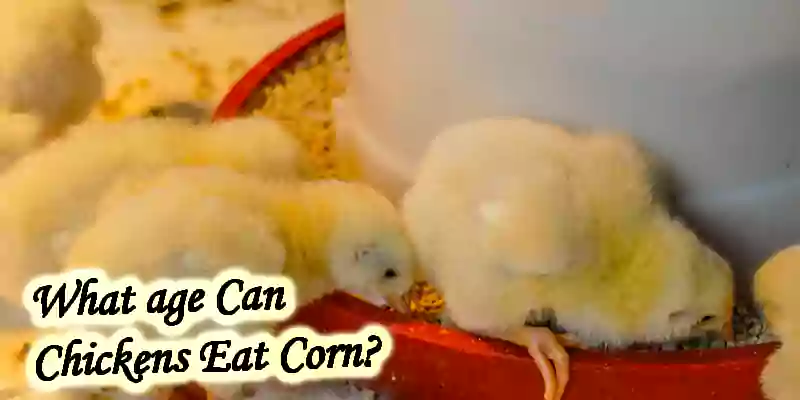
Can Chickens Eat Corn every day?
Yes, chickens can eat corn every day. Be careful; it shouldn’t dominate their diet. It is energy-rich but lacks essential nutrients like protein, vitamins, and minerals. These nutrients are needed for egg production and their growth. Feeding the grains daily in large amounts can lead to nutritional imbalances, weight gain, or obesity, which may affect laying performance and overall health.
Additionally, overfeeding can result in crop issues, as they may fill up on it and ignore their balanced feed. To avoid these risks, use it as a supplement or treat, ensuring their primary diet is a high-quality poultry feed.
Benefits of Corn for Chickens
It offers several benefits for birds, making it a valuable addition to their diet when fed in moderation. It provides energy, supports their overall health, and can be a great treat. Here are some key benefits of feeding these nutritional tiny feed:
|
Risks of Feeding Corn to Chickens
While it can be a nutritious treat, it also comes with certain risks if overfed or not served properly. Excessive intake can lead to health issues and imbalances in their diet. Here are some potential drawbacks to consider:
|
Can Chickens Eat Corn Husks?
Yes, they can eat corn husks in moderation. While not highly nutritious, they are a safe and fibrous treat that can aid digestion. They provide roughage, which helps keep the digestive systems moving. However, husks should be fed sparingly. Too much fiber can lead to digestive upset. Be sure to remove any pesticides or contaminants. Generally, the food can be a fun, crunchy snack for your chickens!
Can Chickens Eat Corn Kernels?
Yes, they can eat kernels. They are a great energy source, carbohydrates, and some essential vitamins. However, they should be in moderation as part of a balanced diet to avoid nutritional imbalances or obesity.
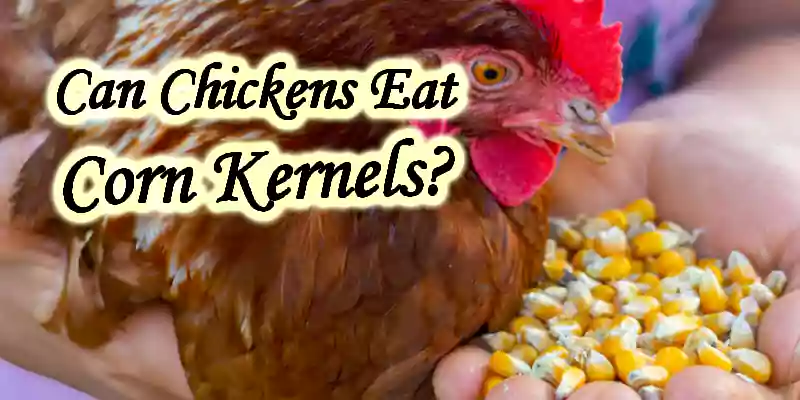
Here are some common ways to serve kernels to your flock:
Can Chickens Eat Frozen Corn Kernels?
Yes, birds can eat frozen maize kernels, but it’s best to thaw them first. Frozen grains may be difficult for them to eat and digest when it’s too cold. Thawed food provides the same benefits as fresh.
Can Chickens Eat Popping Corn Kernels?
Yes, clucking friends can eat popping grain kernels in moderation. You should not be fed the unpopped kernels to the flock. Popped maize is safe and can be a fun treat for them. At the same time, unpopped kernels are hard and could pose a choking hazard to younger clucking animals. Always provide popped maize in moderation as part of a balanced diet.
Can Chickens Eat Cooked Corn Kernels?
Yes, they can eat cooked corn kernels and enjoy it. Cooking makes them easier to digest. However, avoid adding butter, salt, or spices, as these can be harmful and cause digestive problems. Serve cooked food to them as an occasional treat, not a primary food source.
Can Chickens Eat Corn on the Cob?
Yes, chickens love to eat corn on the cob. It provides a tasty treat and an opportunity for them to peck and exercise their beaks. It is also a good source of energy. Ensure it’s offered in moderation, and remove any leftover cobs to prevent spoilage or choking hazards.
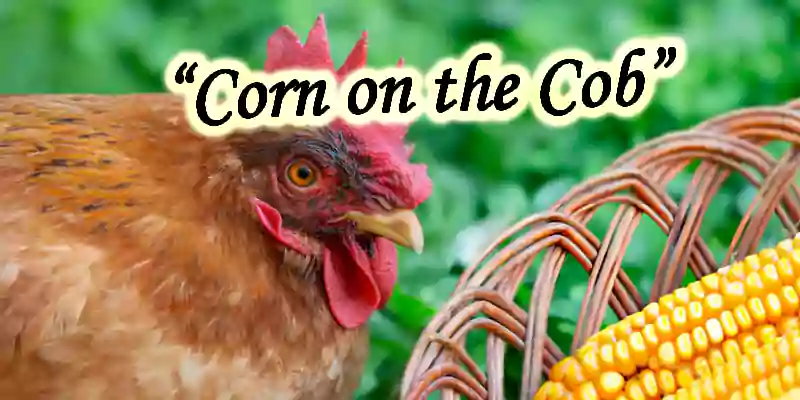
Here are some ways to serve them:
Can Chickens Eat Corn on the Cob Uncooked?
Yes, they can eat uncooked maize. They enjoy pecking at the kernels, providing a fun, engaging treat. Uncooked maize is safe, but we advise to offer it in moderation. Serve it as part of a balanced diet to prevent overfeeding and nutritional imbalances.
Can Chickens Eat Corn on the Cob with Butter?
No, feeding grains with butter is not recommended. The added fats, salt, and spices in butter can harm our flock. These additives can lead to digestive issues or weight gain. We recommend offering plain, without any seasonings or toppings.
Can Chickens Eat Raw Corn on the Cob?
Yes, birds can eat raw grains. Raw diet is safe and provides a fun, interactive treat for them to peck at. However, it should be given in moderation as part of a balanced diet. Excessive feeding will lead to nutritional deficiency.
Can Chickens Eat Cooked Corn on the Cob?
Yes, chickens can eat cooked maize. Cooking makes the kernels softer and easier to digest. We suggest avoiding adding seasonings like butter, salt, or spices, as these can harm their health. Serve it in moderation as a treat alongside their regular balanced feed.
Can Chickens Eat Leftover Corn on the Cob?
It depends. They can eat leftover grains if it hasn’t spoiled. Ensure it is fresh and free from mold or contaminants before serving to your flock. Leftover grains can be a fun, nutritious treat but should be given in moderation to prevent nutritional imbalance.
Can Chickens Eat Corn on the Cob Leaves?
Yes, they can eat their leaves in small qunatity. The leaves are safe and provide fiber, which aids digestion. However, it is not an ideal diet for them. They should be given in moderation, as too much fiber can cause digestive issues. Ensure the leaves are clean and pesticide-free before offering them to your flock.
Can Chickens Eat Corn on the Cob Husks?
Yes, they can eat these husks. The husks are fibrous and safe for the backyard flock. It provides roughage that aids digestion. However, they should be given to them sparingly, as excessive intake can cause digestive upset. Ensure the husks are clean and free from chemicals or pesticides.
What Parts of Corn Can Chickens Eat?
Chickens can enjoy almost every part of the it, though some are more beneficial. Each part of it offers different nutritional value. Below, we’ll break down the various parts of it so that your flock can safely eat.
Can Chickens Eat Corn Stalks?
Yes, they can have their stalks in limited volume. We never prefer or suggest serving the stalks to chickens. They are not very nutritious as compared to other parts of it. While they can peck at the stalks for roughage and entertainment, they shouldn’t be a primary food source. Stalks can be a fun treat but should be offered in moderation alongside a balanced diet.
Can Chickens Eat Corn Leaves
Yes, leaves are good with caution. The leaves are safe and provide fiber. The dietary fiber helps with digestion. However, they should be in moderation, as too much fiber can cause digestive issues. Ensure the leaves are clean and pesticides-free before feeding them to your animals.
Can Chickens Eat Corn Seeds?
Yes, they can eat these tiny seeds in moderation. The seeds are essentially the same as kernels. They provide energy, carbohydrates, and some essential vitamins. It’s seeds can be fed raw, cooked, or dried but should be given in moderation as part of a balanced diet to prevent nutritional imbalances.
Can Chickens Eat Corn Sprouts?
Yes, hens and roosters love to peck at tender sprouts, and they’re pretty nutritious. It’s sprouts are rich in vitamins, minerals, and antioxidants that can benefit your flock. They can be served fresh and are a great addition to their diet. These sprouts should still be fed in moderation alongside a balanced feed.
Can Chickens Eat Corn Nuts?
Yes, they can eat these nuts. They are just dried, roasted kernels. They are safe and provide a crunchy, tasty treat for hens. However, the nuts should be given in moderation, as they’re high in calories and may lead to weight gain or other nutritional issues if fed excessively.
How to Serve Corn to Chickens: Different Forms Explained
This section will explore how you can serve maize to your flock. Each form offers unique benefits for your flock, whether it’s whole, cracked, or cooked version. Understanding these options lets you choose the best way to incorporate it into a chicken’s diet.
Can Chickens Eat Boiled Corn?
Yes, boiled diet is recommended for the backyard flock. Boiling makes it softer and easier to digest. Just be sure not to add salt, butter, or other seasonings, as these can harm your flock. Boiled food can be a tasty, nutritious treat when served in moderation alongside their regular feed.
Can Chickens Eat Roasted Corn?
Yes, they can eat roasted food in moderation. Hens and Buns enjoy the crunchy texture of roasted maize. Roasting process doesn’t remove its nutritional value. We recommend serving plain roasted diet without added oils, salt, or seasonings. Offer roasted grains in moderation as a treat, ensuring it complements a balanced, nutrient-rich diet.
Can Chickens Eat Buttered Corn?
No, they should not eat the grains for a valid reason. While plain food is safe, while buttered feed contain fats, salt, and other additives that can harm their health. It can cause digestive issues or obesity. It’s best to serve it without butter or other seasonings to keep it healthy for your flock.
Can Chickens Eat Canned Corn?
Yes, they can peck at them. We do not prefer canned diet because it mostly has additives. Choose the variety without added salt, sugar, or preservatives. Rinse them thoroughly to remove any excess liquid or additives to minimize the effects. Canned maize can be a convenient treat, but it should be offered in moderation as part of a balanced diet.
Can Chickens Eat Grilled Corn?
Yes, chicks like the crunchy texture of them. Ensure it is plain, without added butter, salt, or spices. Grilled grains can be a tasty, crunchy treat for your flock and retains its nutritional value. Offer it in moderation as a fun snack alongside their regular, balanced feed.
Can Chickens Eat Cracked Corn?
Yes, they can have them in limited volume. It is a popular treat, and poultry owners love it. Cracked food is easier for them to digest than whole kernels, making it a great option. It provides energy, but it should be given in moderation as part of a balanced diet to prevent nutritional imbalances.
Can Chickens Eat Dried Corn?
Yes, our flock can eat dried grains in small amounts. They often enjoy pecking at it. Dried food is safe, provides energy, and can be stored easily. However, it should be fed in moderation to avoid over-consumption of carbohydrates. Birds still get a balanced diet with adequate protein and nutrients with a little portion of dried porn.
Can Chickens Eat Frozen Corn?
Yes, frozen cubes of maize is good for the flock with some precautions. We suggest to thaw it before serving to the flock. Additionally, frozen maize can be difficult to digest. Thawing makes it easier for them to enjoy, providing the same nutritional benefits as fresh diet.
Can Chickens Eat Ground Corn?
Yes, they can consume them as an occasional diet. Ground feed is easier to digest than whole kernels, making it a good option. However, it should be fed in moderation as part of a balanced diet. Over-consumption of carbohydrates is harmful to your flock.
Can Chickens Eat Mixed Corn?
Yes, we recommend this tactic. Mix whole, cracked, and sometimes even dried maize with other grains. It can be a nutritious treat when served in moderation. However, ensure the mix doesn’t contain harmful additives or excess salt, which can harm your flock.
Can Chickens Eat Whole Corn?
Yes, they can consume these whole grains. It is difficult to digest whole grains compared to cracked or ground ones. Offering whole maize as an occasional diet is fine, but it should be fed in moderation. Whole nuts are not recommended for young chicks. Instead, feeding cracked or ground version to chicks is better to avoid digestive issues.
Can Chickens Eat Rolled Corn?
Yes, they can eat rolled corn occasionally. Rolled food is simply flattened or processed for easier digestion. Rolled grains retains its nutritional value and provides energy to hens and roosters. It can be a great addition to their diet, but like all products, it should be fed in moderation to maintain a balanced diet.
Alternatives to Corn for Chickens
- Wheat: High in energy and protein, wheat is an excellent alternatives for overall growth and egg production. It can be fed whole or ground.
- Barley: Rich in fiber and moderate protein, barley supports digestion but should be balanced with other grains to avoid overloading fiber intake.
- Oats: A nutritious option, oats provide protein and energy. Rolled or sprouted oats can help grow feathers and maintain a healthy weight.
- Rice: Cooked rice is an easy-to-digest carbohydrate source, offering energy and some protein, especially in its brown variety.
- Peas: Packed with protein, peas are excellent for boosting muscle development and egg production when included in a balanced diet.
- Sunflower Seeds: These are high in fat and protein, ideal for molting periods, enhancing feathers and energy during cold weather.
- Sorghum: A drought-resistant grain, sorghum is rich in antioxidants and carbohydrates, promoting energy without the risk of mold seen in corn.
- Millet: Easy to digest and rich in carbohydrates, millet supports energy needs, making it suitable for young and active flocks.
- Quinoa: Quinoa provides high-quality protein and essential amino acids, supporting strong muscle and healthy eggs. Cook before feeding.
- Buckwheat: Gluten-free and high in fiber, buckwheat promotes good digestion and is rich in vitamins, particularly B vitamins.
- Soybeans: Cooked or processed soybeans are protein-rich, supporting egg-laying and muscle growth, but avoid raw due to anti-nutrients.
- Flax seeds: High in omega-3 fatty acid, flax seeds improves egg quality, giving yolks a vibrant color and promoting healthy feathers.
FREQUENTLY ASKED QUESTIONS:
Can Chickens Eat Dehydrated Corn?
Yes, they can eat dehydrated grains with some precautionary steps. It is safe and provides energy to them. It should be rehydrated or served in moderation, as it can be harder to digest when too dry. Always ensure it’s free of additives or preservatives before feeding.
Can Chickens Eat Moldy Corn?
No, they should not eat moldy food. Mold can produce mycotoxins that are harmful to them. Moldy foods are potentially causing digestive issues, weakened immune systems, or even death to the flock. Always ensure that grains are fresh and mold-free before offering it to your flock.
Can Chickens Eat Rotten Corn?
No, they should not eat rotten diet. Rotten feed can contain harmful bacteria or mold that could lead to food poisoning or other health issues. Additionally, the taste of rotten food is annoying for the flock. Always discard any food that appears spoiled or rotten to protect your bird’s health.
Can Chickens Eat Unripe Corn?
Chickens can eat unripe corns in moderation. It is harder for them to digest due to its tougher texture. While not harmful, unripe food should be fed sparingly to them. Unripe nuts lack the total nutritional value of mature maize.
Can Chickens Eat Kettle Corn?
No, they should not eat kettle corns. The added sugar, salt, and butter are unhealthy for them and can lead to digestive issues or obesity. It’s best to avoid giving kettle maize and stick to plain, unsweetened grains instead.
Can Chickens Eat Deer Corn?
Yes, they enjoy it, as it is typically just whole or cracked grains. It is safe for the flock in controlled quantities. However, ensure that each grain is free from pesticides, additives, or preservatives, as these can harm your flock’s health.
Can Chickens Eat Cornbread?
Yes, suggested in moderation, but it should not be a regular diet. It contains added ingredients like sugar, salt, and butter, which aren’t ideal for them. It’s best to offer the bread occasionally as a treat.
Can Chickens Eat Corn Tortillas?
Corn tortillas are recommended in small amounts, but they should not be a regular part of their diet. Tortillas often contain added salt, oils, and preservatives, which can harm young birds if consumed excessively. Offer the tortillas occasionally as a treat.
Can Chickens Eat Cornmeal?
Yes, they can eat cornmeal, often included in poultry feed. It’s a good source of carbohydrates and energy. However, it should be fed in moderation as part of a balanced diet, not as a primary food source.
Can Chickens Eat Corn Flakes?
They can have them in small amounts. They should not be a regular part of their routine diet. They often contain added sugar, salt, and preservatives, which can harm clucking flock. Offer them as an occasional treat, not a staple food.
Can Chickens Eat Corn Chips?
Chickens should not eat these chips. They contain unhealthy amounts of salt, oils, and other additives that can lead to digestive issues, obesity, or other health problems. We advise you to avoid feeding it’s chips to your animals.
Can Chickens Eat Corn in the winter?
Yes, chickens can easily consume it in the winter. It can be a good energy boost during colder months, as it helps keep the flock warm. However, it should be fed in moderation as part of a balanced diet.
Conclusion
In conclusion, corn is a nutritious and versatile treat for chickens. It offers them energy and essential nutrients when served in moderation. It can be a valuable addition to their diet, whether it’s on the cob, cracked, or in other forms. However, it is important to avoid feeding them maize with unhealthy additives like salt, butter, or sugar. Always ensure variety in their diet to keep your flock healthy and happy throughout the year.

- Be Respectful
- Stay Relevant
- Stay Positive
- True Feedback
- Encourage Discussion
- Avoid Spamming
- No Fake News
- Don't Copy-Paste
- No Personal Attacks

- Be Respectful
- Stay Relevant
- Stay Positive
- True Feedback
- Encourage Discussion
- Avoid Spamming
- No Fake News
- Don't Copy-Paste
- No Personal Attacks
